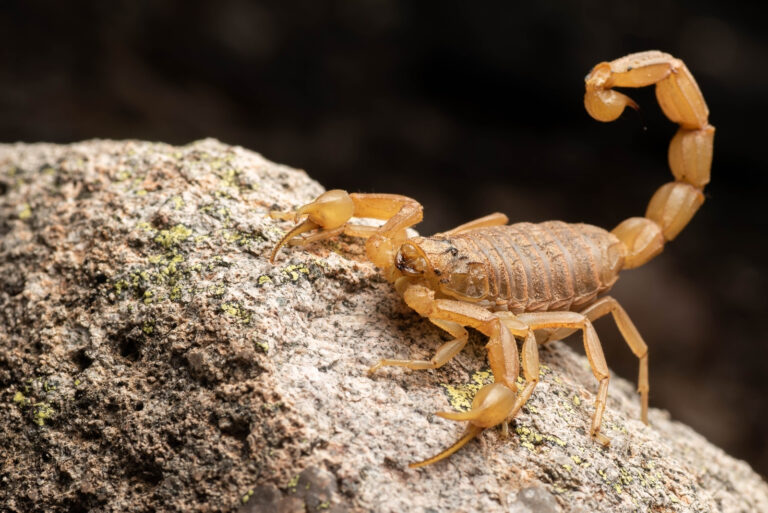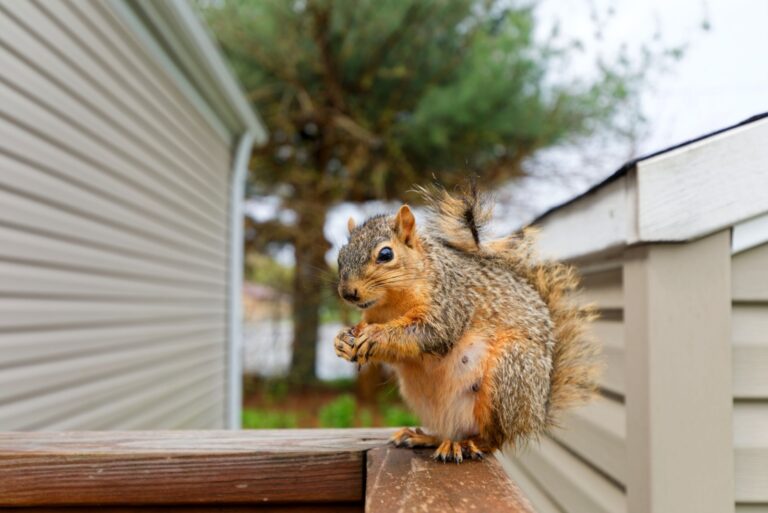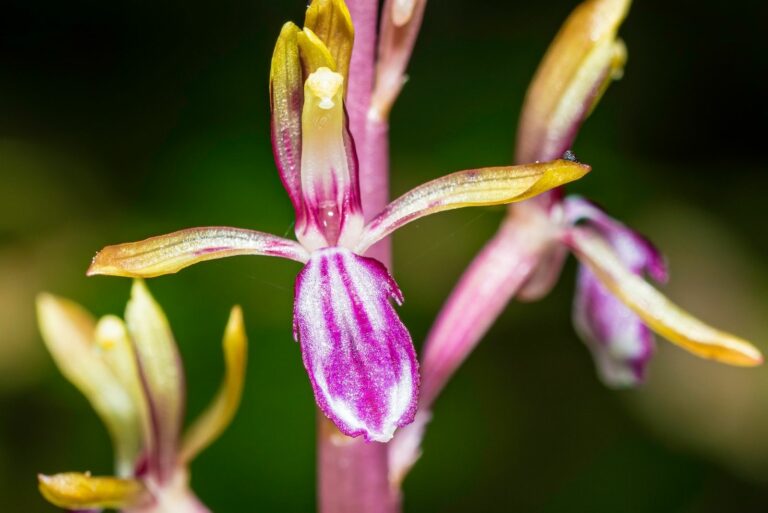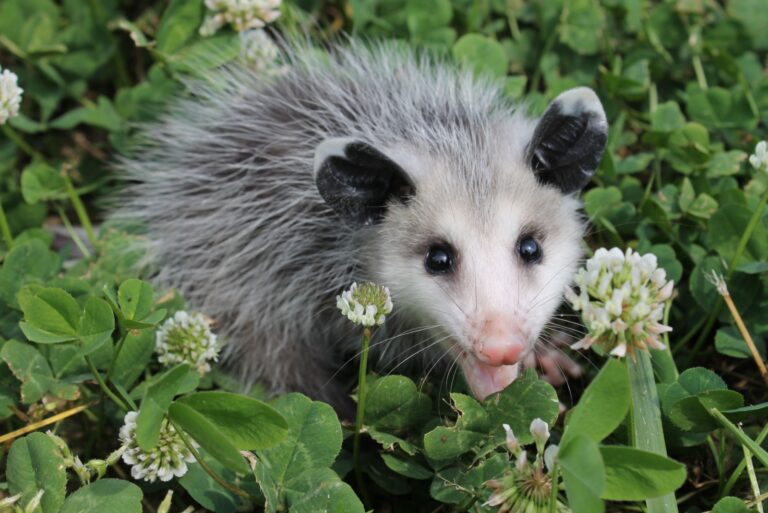16 Reasons Why You Should Think Twice Before Kicking Possums Out Of Your Yard

They may look a little eerie with their beady eyes and bare tails, but possums are secret allies in your garden. Instead of chasing them off, take a moment to appreciate what they bring to the table—because it’s a lot more than meets the eye.
These nighttime wanderers feast on garden pests like slugs, beetles, and ticks, helping keep your plants healthy without chemicals. They’re like nature’s version of pest control, quietly doing the dirty work while you sleep.
Possums rarely cause damage, and their presence helps create a balanced backyard ecosystem. So next time one waddles by, consider it a good omen—your garden just recruited a very unexpected hero.
1. Tick Terminators
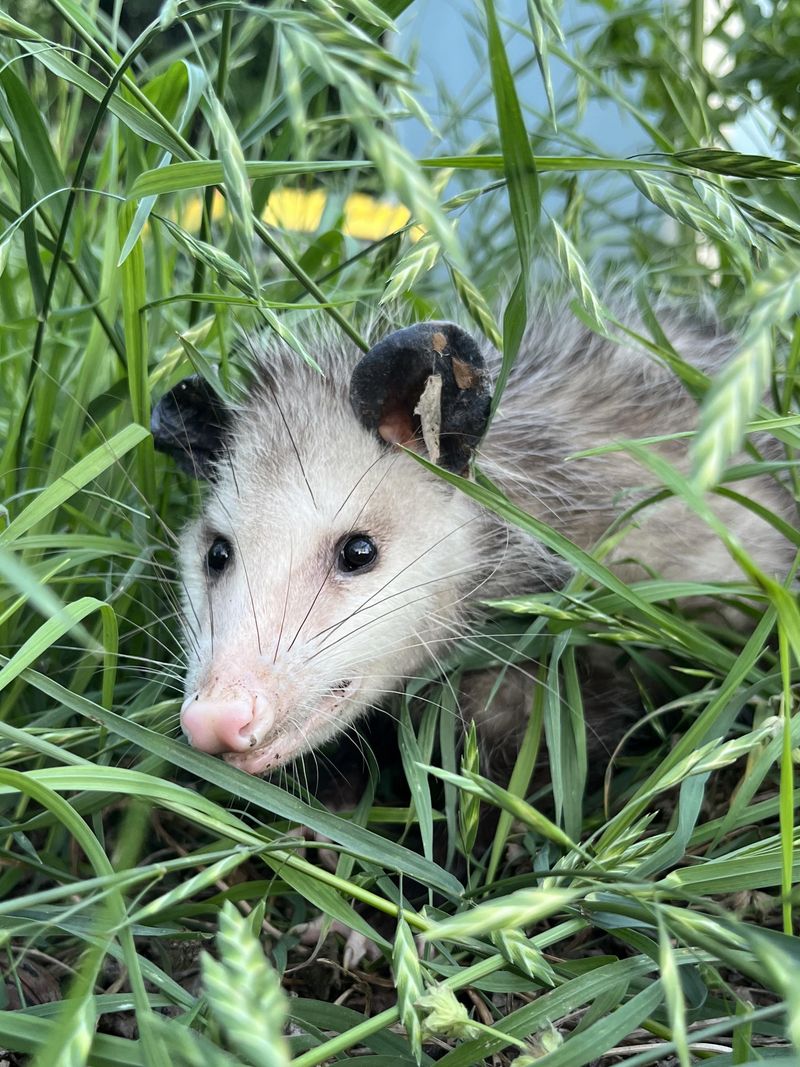
A single possum can devour up to 5,000 ticks in one season! These marsupials groom themselves constantly, finding and eating ticks that try to latch onto their fur.
Unlike other mammals that serve as tick hosts, possums are remarkably efficient at removing and consuming these parasites before they can spread disease.
My neighbor’s wooded property had fewer ticks after a family of possums took up residence nearby. Nature’s pest control doesn’t get much more effective than this.
2. Snake Snackers
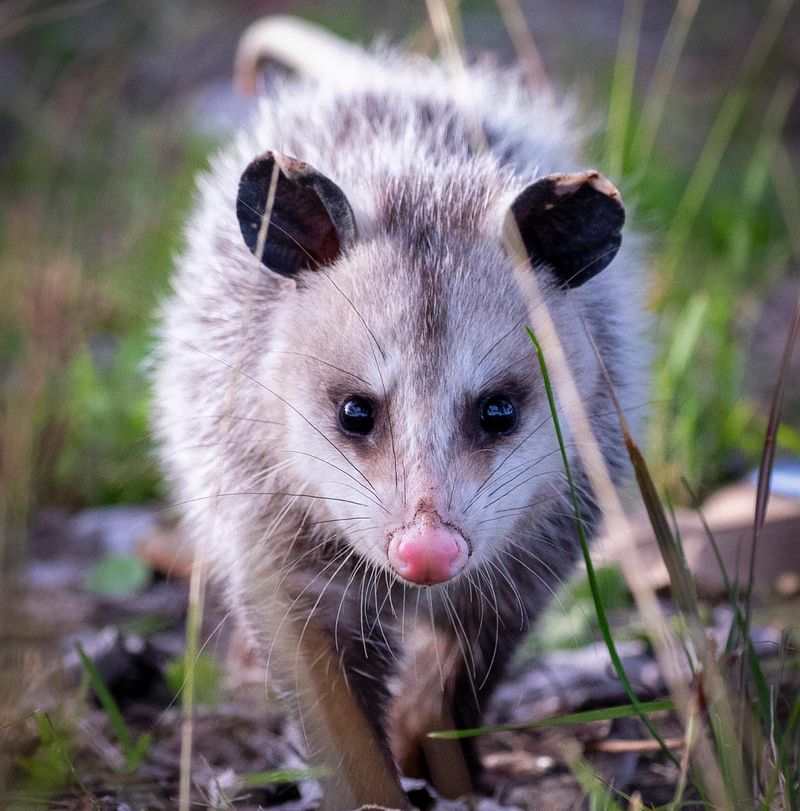
Surprisingly resistant to snake venom, these hardy creatures regularly hunt and eat venomous snakes, including copperheads and rattlesnakes.
Their natural immunity makes them perfect predators for these dangerous reptiles. Having possums around means fewer dangerous snake encounters for you and your family.
They’re essentially free snake control! Last summer, I spotted a possum carrying off a small snake near my garden shed – a service I was quite grateful for given my snake phobia.
3. Rodent Regulators
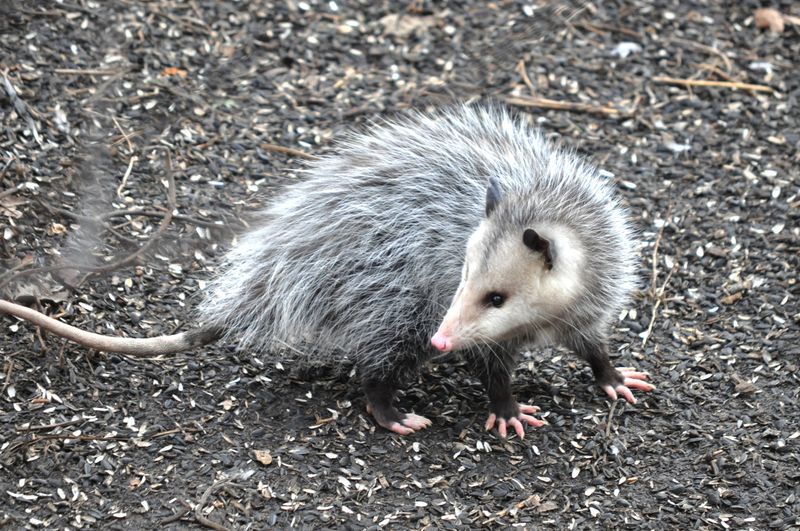
Forget expensive rodent control services! These natural predators have a taste for mice and rats, helping keep rodent populations under control around your property.
While cats might bring you “gifts” of dead mice, possums simply eat them, leaving no mess for you to clean up. Their hunting habits are particularly beneficial if you live near fields or wooded areas.
The year a possum family moved under my shed coincided with the first summer I didn’t have mice in my garden storage bins. Coincidence? I think not.
4. Garden Guardians
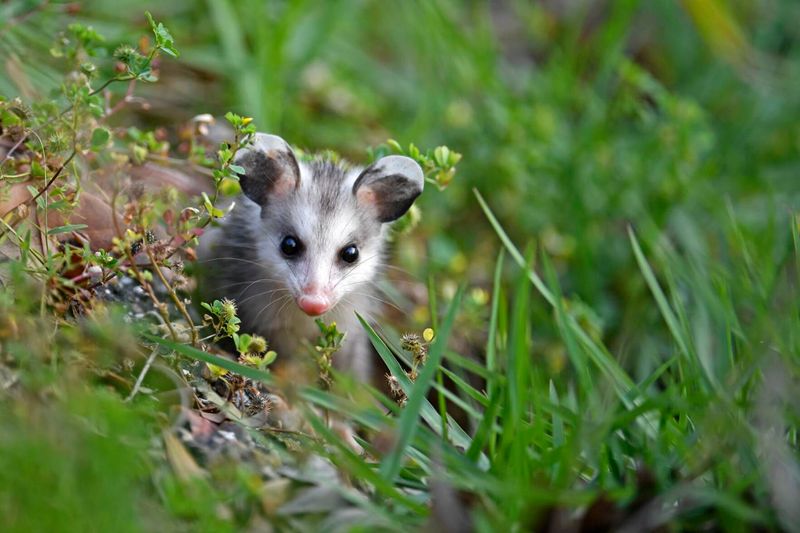
Garden pests don’t stand a chance when possums are around. These omnivorous creatures feast on slugs, snails, beetles, and other insects that damage your precious plants.
Unlike chemical pesticides, possums provide targeted pest control without harming beneficial insects like bees and butterflies. Their selective appetite makes them perfect garden allies.
The hostas in my side yard used to be slug-eaten disasters until a possum started making nightly rounds. Now they’re picture-perfect without any slug bait required.
5. Cleanup Crew Champions
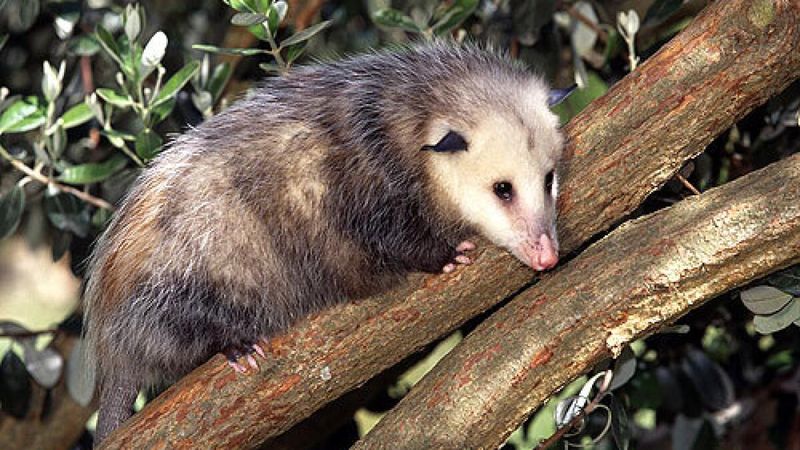
Nature’s sanitation workers, possums scavenge fallen fruit, garden debris, and even carrion that would otherwise attract flies and other pests.
They help prevent disease spread by cleaning up potential sources of bacteria. After windy days, I’ve watched possums methodically collect fallen apples from under my tree. This natural cleanup service prevents fruit flies and wasps from taking over.
Their scavenging behavior might seem gross, but it’s actually incredibly beneficial for maintaining a clean, healthy outdoor environment around your home.
6. Rabies-Resistant Residents
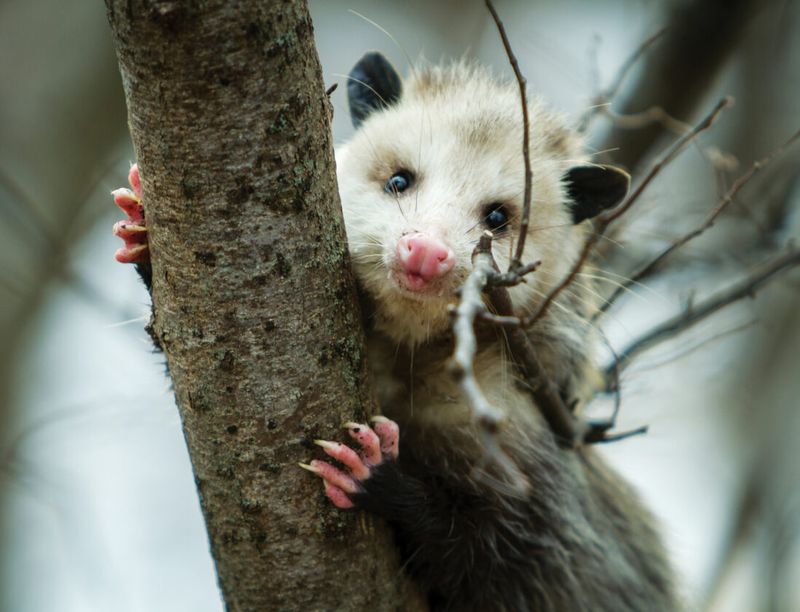
Despite common misconceptions, possums rarely carry rabies thanks to their unusually low body temperature. The rabies virus simply doesn’t thrive in their cooler systems.
While you should always exercise caution around wildlife, possums pose significantly less rabies risk than raccoons, skunks, or bats. Their resistance to this deadly disease is truly remarkable.
When my dog cornered a possum last year, I was relieved to learn from our vet that rabies transmission from possums is extremely unlikely. One less thing to worry about!
7. Gentle Neighbors
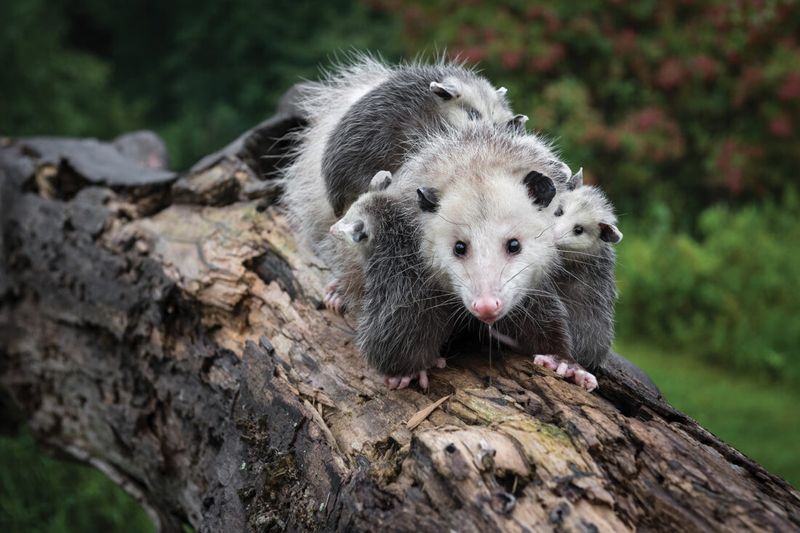
Despite their frightening defensive display of hissing and showing teeth, possums are actually quite docile. They prefer flight over fight and will typically shuffle away when encountered.
Their infamous “playing dead” response happens when they’re truly terrified – not as a cunning strategy. This stress response is involuntary and shows just how non-confrontational these creatures really are.
The possum that visits my compost pile freezes when my motion lights activate, then quietly retreats when it thinks I’m not looking. No drama, no damage.
8. Poison Ivy Munchers
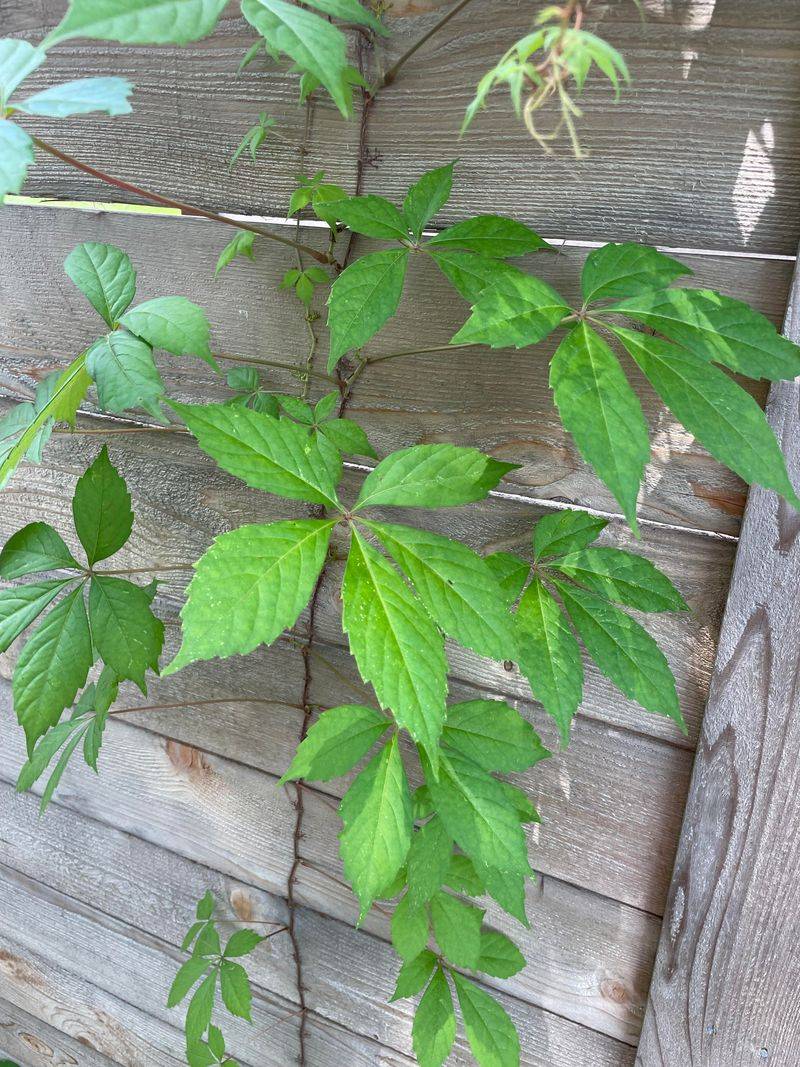
Few creatures willingly eat poison ivy, but possums are among the rare animals that can consume this irritating plant without ill effects. Their unusual diet includes poison ivy berries and even the leaves!
By eating poison ivy seeds, they prevent the plant from spreading throughout your yard. This natural control helps maintain boundaries between wild areas and your landscaped spaces.
The wooded edge of my property used to be overrun with poison ivy until a possum family moved in nearby. Now I can walk that area without worrying about the dreaded rash.
9. Temporary Tenants
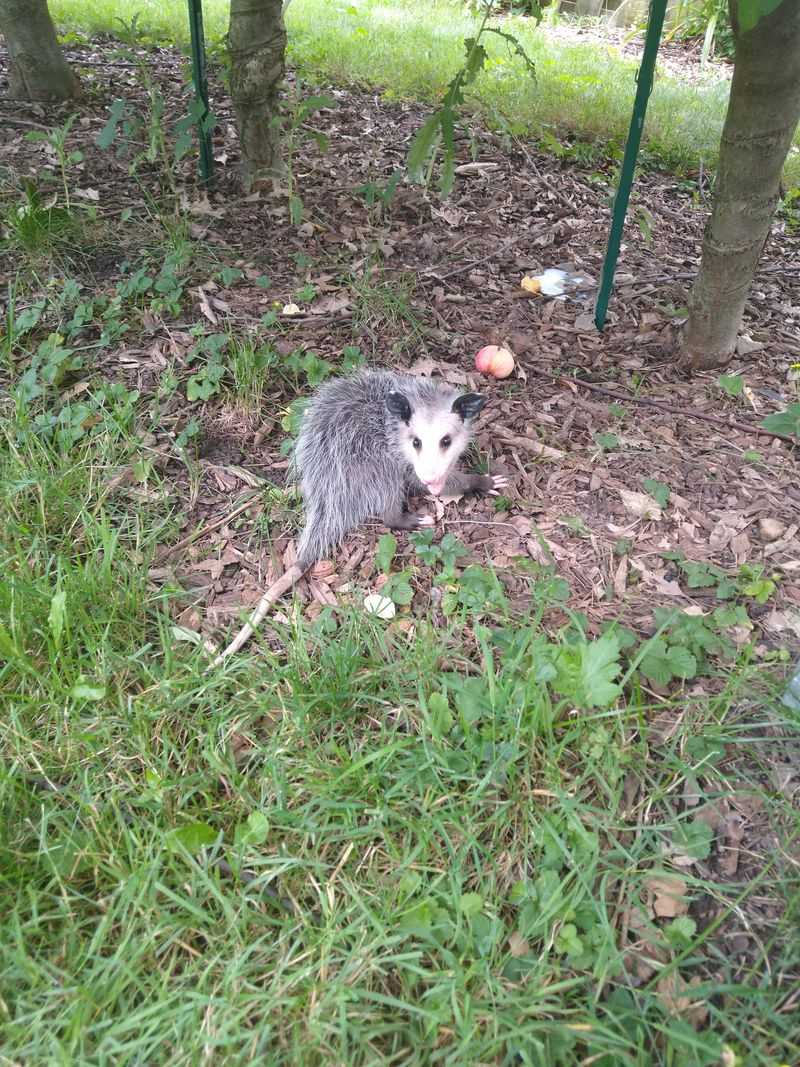
Unlike some wildlife that establishes permanent territories, possums are nomadic by nature. They typically stay in one area for just a few days before moving along to new hunting grounds.
This transient lifestyle means you’ll likely only have possums as temporary visitors rather than permanent residents. They rarely cause lasting damage to property.
The possum under my porch only stayed about a week before continuing its journey. It left nothing behind except fewer garden pests – a perfect houseguest in my book!
10. Lyme Disease Fighters
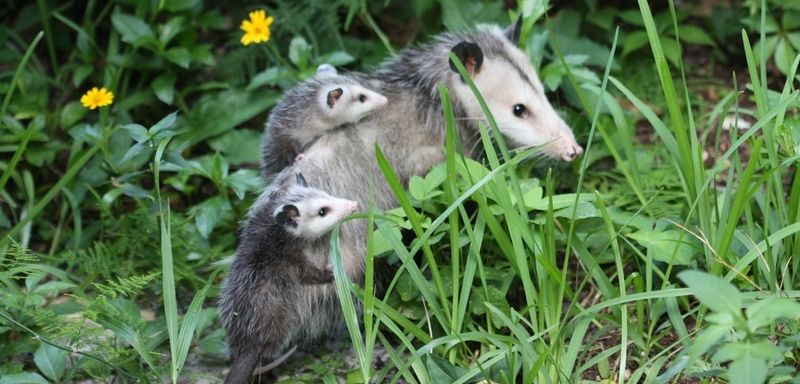
By consuming thousands of ticks, possums directly reduce Lyme disease risk in your yard. Their tick-eating habits make them frontline defenders against this serious illness.
Research shows areas with healthy possum populations have lower incidences of Lyme disease. One study estimated possums might eliminate up to 96% of ticks they encounter!
After learning this fact, I stopped worrying when I spotted a possum near my children’s play area. It wasn’t a threat – it was protecting my family from tick-borne diseases.
11. Low-Impact Visitors
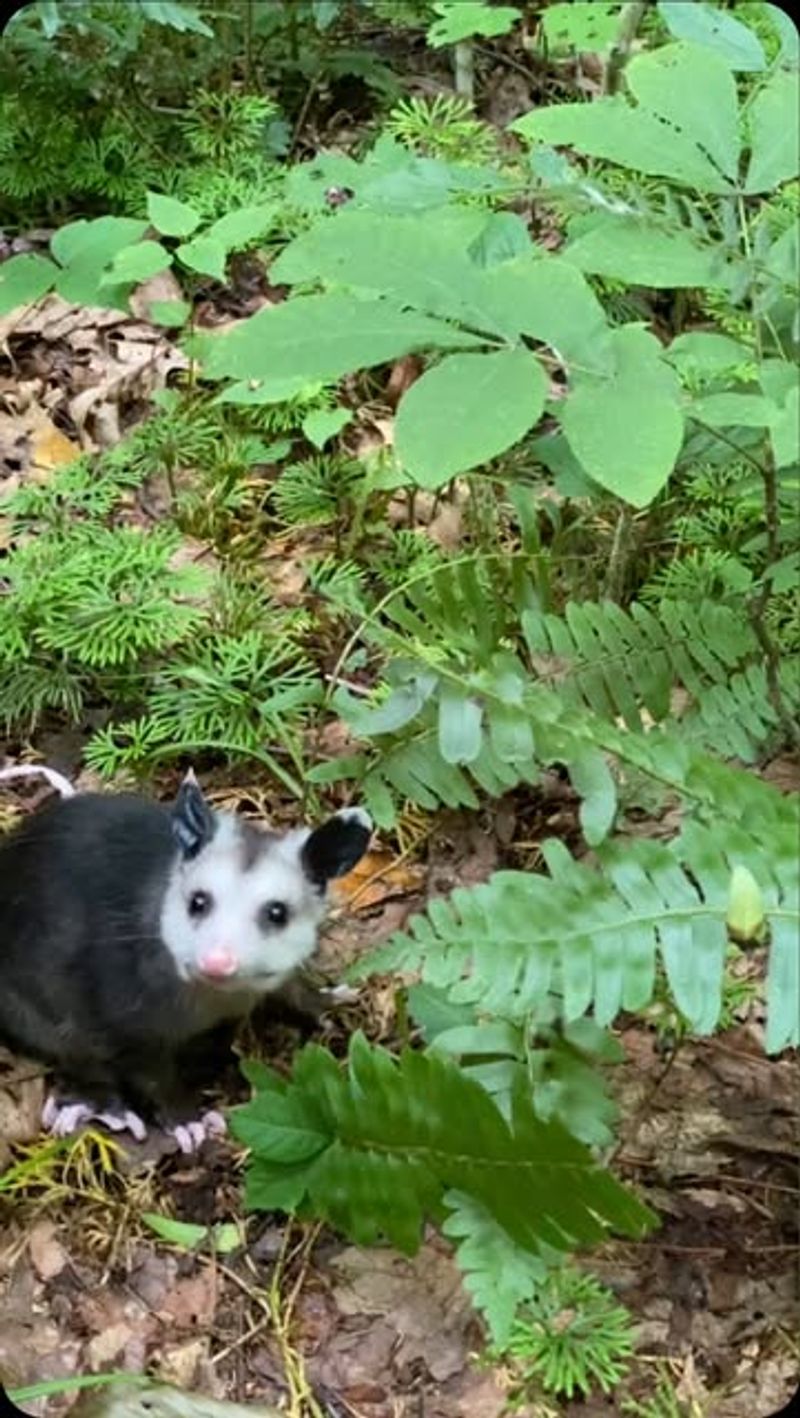
Unlike raccoons that tear through trash or squirrels that chew wiring, possums rarely cause property damage. Their careful, non-destructive foraging leaves minimal evidence behind.
They don’t dig extensive burrows or destroy garden beds. Instead, they utilize existing shelters like brush piles or hollow logs for temporary rest stops.
When a possum took shelter under my deck during a rainstorm, I expected damage but found none afterward. These considerate creatures don’t repay your hospitality with destruction.
12. Scorpion Searchers
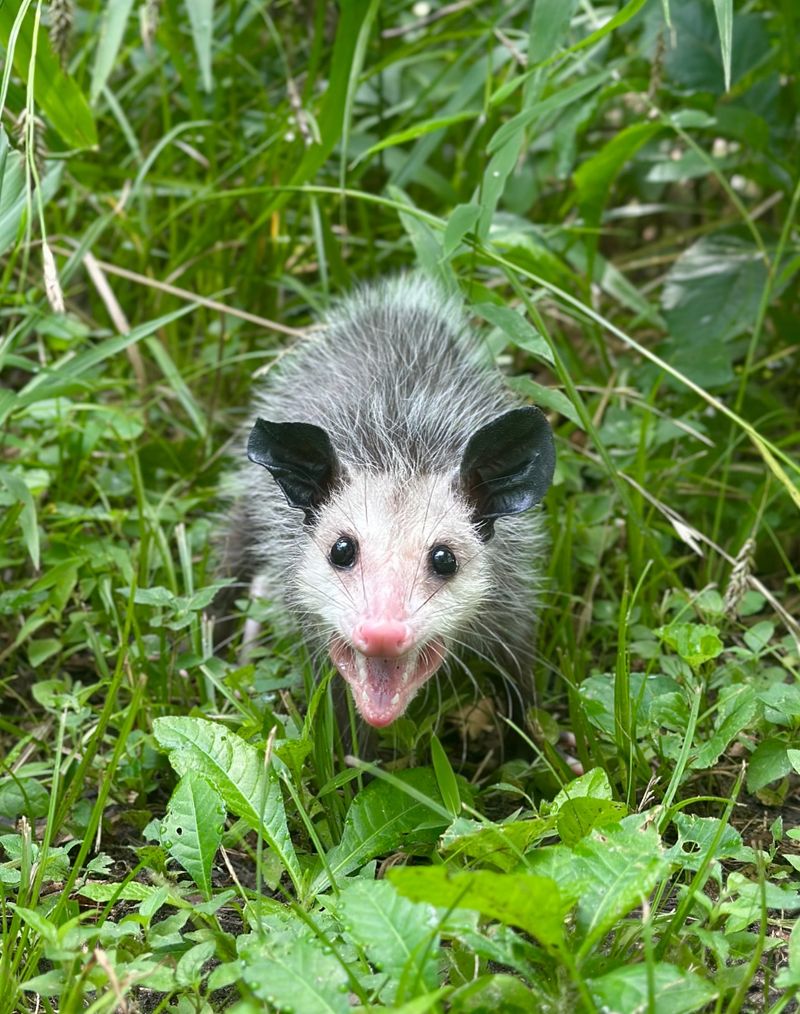
In regions where scorpions pose threats, possums serve as natural exterminators. Their thick skin and partial immunity to venom make them effective predators of these painful pests.
Homeowners in scorpion-prone areas often report fewer encounters after possums take up residence nearby. This natural control method works without chemicals or traps.
My Arizona relatives welcome possums on their property specifically for scorpion control. They haven’t had a scorpion in the house since a possum family moved into their yard three years ago.
13. Compost Companions
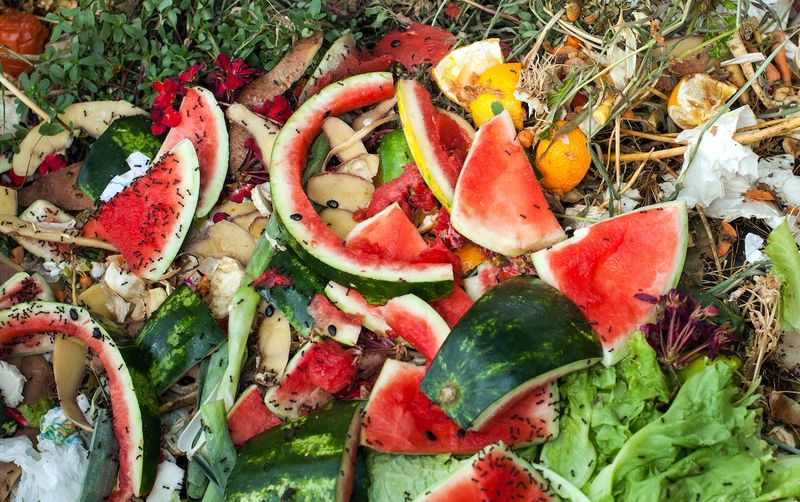
Possums can actually help manage your compost pile by consuming many decomposing materials and leaving behind nitrogen-rich droppings. They accelerate the composting process naturally.
Unlike rats that might take up permanent residence in compost, possums visit briefly, take what they need, and move on. Their foraging rarely disrupts well-maintained compost systems.
The compost in my garden breaks down faster during possum visiting seasons. These furry decomposers turn yesterday’s kitchen scraps into tomorrow’s garden gold!
14. Mosquito Munchers
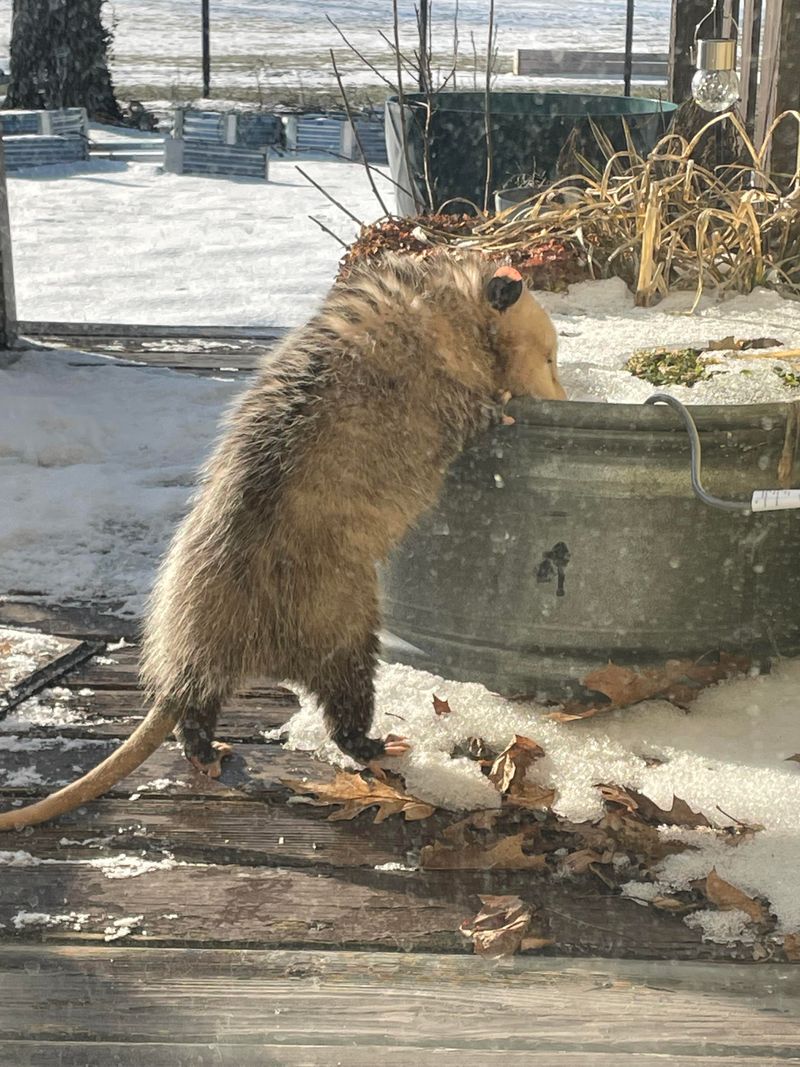
Few people realize possums consume mosquitoes and their larvae as part of their varied diet. Their nightly hunting helps reduce these blood-sucking pests around your property.
By eating insects that breed in standing water, possums provide yet another layer of pest control. Their appetite for mosquitoes makes summer evenings more enjoyable.
The possum that frequents my yard seems particularly fond of hunting near my rain barrel – precisely where mosquitoes would otherwise breed uncontrolled. Nature’s pest management at its finest!
15. Teaching Tools
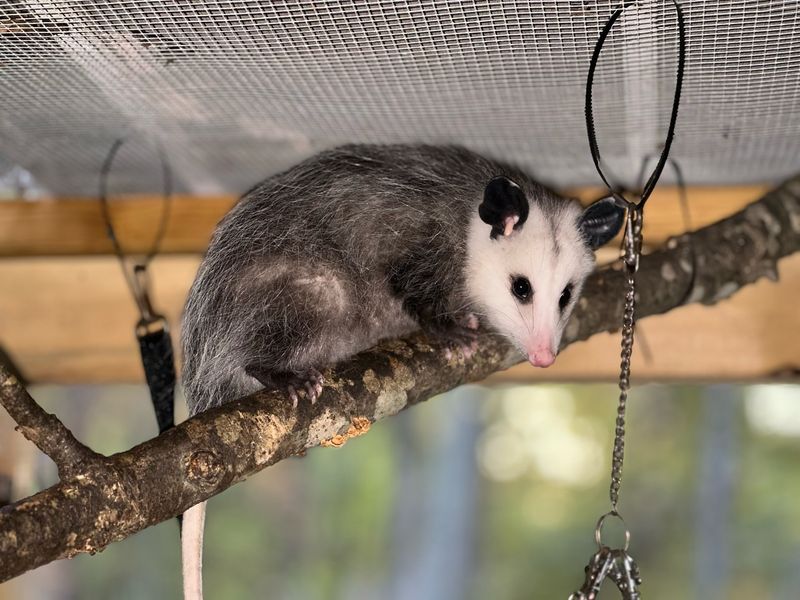
Having possums visit offers wonderful educational opportunities for children to learn about native wildlife. These unique marsupials – the only ones in North America – demonstrate fascinating adaptations.
Watching possums from a respectful distance teaches kids about biodiversity right in their own backyard. Their presence sparks curiosity about natural ecosystems and food webs.
My daughter’s science project on local wildlife started with observing the possum that visited our yard. Her teacher was impressed with her firsthand observations of this misunderstood creature.
16. Ecological Indicators
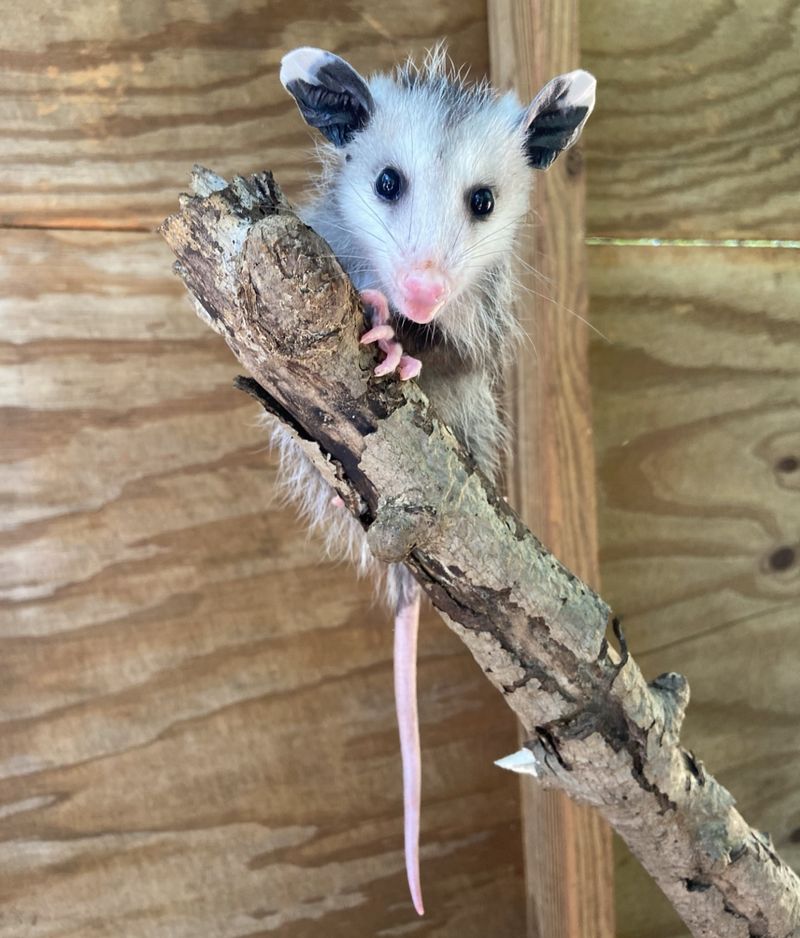
The presence of possums indicates a healthy, balanced ecosystem. As omnivores that fill a specific ecological niche, their appearance suggests your yard supports diverse wildlife.
A yard that attracts possums likely has the right mix of plants, insects, and small wildlife to maintain natural balances. They’re a living stamp of approval for your garden’s biodiversity.
When possums started visiting my native plant garden, I took it as confirmation that my efforts to create a wildlife-friendly space were succeeding. They’re nature’s way of saying “good job!”

